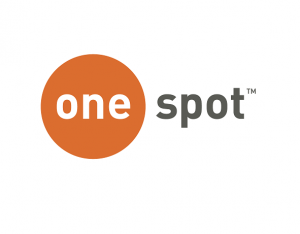Another Tax Day has come and gone. For some, April 17 loomed large.
 Its passing was met with relief. For millennials, which next year are expected to become the largest generation at 73 million strong,1 it’s one of assorted financially related events that remain cloudy. Only 22 percent of millennials are aware how life events like getting married, having children or buying and selling a home impacts filing their taxes.2 What’s more, this important demographic that grew up during the financial crisis with volatile markets the norm is, as a result, somewhat cautious and conservative about financial matters. About 66 percent of people between the ages of 21 and 32 have absolutely nothing saved for retirement, according to the National Institute on Retirement Security. Clearly, millennials can benefit from the advice and solutions financial services companies offer; establishing and sustaining motivation and commitment with this valuable customer through useful content can be a powerful step towards making this a reality. Indeed, 47 percent of millennials say they would be more likely to trust a financial services company if it created useful content.3 In our view, trust is the prerequisite for motivation and commitment.
Its passing was met with relief. For millennials, which next year are expected to become the largest generation at 73 million strong,1 it’s one of assorted financially related events that remain cloudy. Only 22 percent of millennials are aware how life events like getting married, having children or buying and selling a home impacts filing their taxes.2 What’s more, this important demographic that grew up during the financial crisis with volatile markets the norm is, as a result, somewhat cautious and conservative about financial matters. About 66 percent of people between the ages of 21 and 32 have absolutely nothing saved for retirement, according to the National Institute on Retirement Security. Clearly, millennials can benefit from the advice and solutions financial services companies offer; establishing and sustaining motivation and commitment with this valuable customer through useful content can be a powerful step towards making this a reality. Indeed, 47 percent of millennials say they would be more likely to trust a financial services company if it created useful content.3 In our view, trust is the prerequisite for motivation and commitment.
Also Read: Disruptive Innovation: SaaS Companies Are Migrating To Purchase Convenience
Gaining Millennials’ Trust Through Tailored Content
Compared to older generations, millennials lack financial knowledge and yet, they are entering their prime earning and savings years. So it’s no wonder that 84 percent seek financial advice.4 How they get it is key. As digital natives, technology and online platforms are an important aspect of financial advice — 57 percent say they would even change their bank relationship if the technology solution were better. Recent studies show that millennials accessed their financial institution 8.5 times via a mobile app or browser versus 3.1 times for the non-millennial segment. They also were more than four times more likely to connect with their banking organization via email than their non-millennial counterparts.5 In addition, with social media an everyday part of their lives, expectations for communication and transparency are significant. Interactions with financial brands need to be ongoing and clearly beneficial — not simply transactions fueled by product offers.
Also Read: If AI is Going to Make You a Better Marketer, You Need to Know These Four Things
Millennials are Individuals — Not Just a Demographic
For any company — financial or otherwise — understanding your customer demographics should be a given. And while there may be common threads running through millennials’ financial needs and wants, they are all individuals with unique preferences and should be treated as such. Ally Bank learned this, for example, when it launched “Do It Right,” a community-centric content experience rich with educational articles around topics like understanding investment lingo and managing credit card debt. As the new content Ally created replaced older blogs, they observed that it was challenging for visitors to access the most relevant information for their needs. To take their customer engagement to the next level, Ally started using OneSpot’s machine-learning powered individualization platform, which enabled the company to deliver content recommendations on the site based on each visitor’s historical preferences and real-time behavior, and reached people through paid digital media and retargeting in desktop and mobile as well — all the channels their audience embraces. With this individualized approach, Ally’s content kept visitors engaged on their website longer and was also able to recirculate previously posted content for additional consumption based on relevant interests. Ally’s editorial team worked with OneSpot and used our technology to perform topical analysis and gain deeper insights on what content characteristics and specific pieces of content were truly resonating — empowering them to develop a roadmap for the most impactful content areas for expansion.
Also Read: How App Science Will Lead to Better Predictive AI
Among Ally website visitors, OneSpot’s individualized content recommendations increased the number of highly engaged individuals (visitors who viewed three or more pieces of content in their sessions as compared to unengaged visitors who viewed less content). These highly engaged visitors were three times more likely to click on high-value calls-to-action for Ally like “Open an Account.” They also scrolled 74 percent down the page and spent at least a minute reading the content they were shown, on average. By focusing on providing valuable and educational content tailored to the individual level and delivering these unique experiences at scale, Ally has strengthened its relationship with millennials and become a valued, trusted resource to this audience.
Provide Value, Align with Values and Create Emotional Bonds
When we’re looking to nurture new, mutually beneficial friendships, we don’t simply call and leave the same voicemails for everyone. We have conversations to share points-of-view, secrets, passions and what is important to each of us, and through repeated interactions, create trusted one-to-one bonds. The takeaway for financial services companies is that though seasonal events, milestones and holidays can indeed be compelling touchpoints for engaging content, the nuances of our individual financial concerns and needs are just as important. Becoming a constant and relevant resource to educate and support customers year-round with individualized content tailored to their particular needs can lay the foundation for lifelong and trusting financial services engagement.
Also Read: Blockchain in Advertising: The Implications for Every Player in the System












Comments are closed.